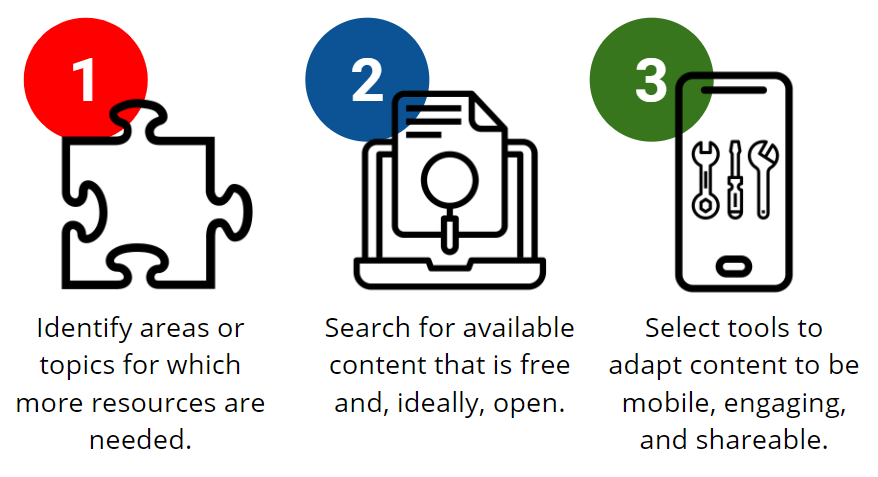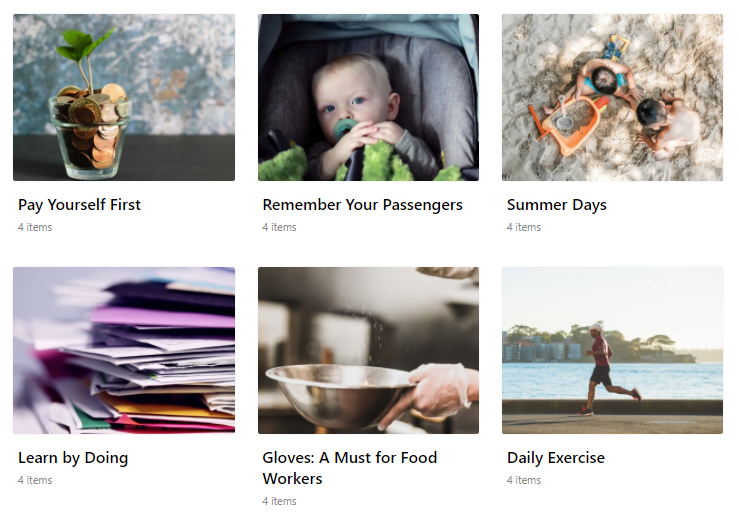Stronger Together: Applying Crowdsourcing to Create (Re)Usable Open Education Resources
November 12th, 2020 | Blogs
As adult education programs shift from emergency remote teaching to more intentional, strategic integration of technology to support instruction and learning, we’ve seen instructors experimenting with a range of different edtech tools. Typically this begins with instructors familiarizing themselves and their learners with a specific tool. If it is found to be effective, teachers gain confidence leveraging the tool as part of regular instruction and (hopefully) develop strategies to expand its regular use with learners.
Through this experimentation, tools such as Padlet, Quizlet, Wakelet (do they all end in -let???) and Google Forms have emerged as popular with adult educators, in particular because they are 1) engaging for learners, 2) easy to use (for teachers and learners), and 3) mobile-friendly. And, because these tools are so widely used, teachers often have the ability to search through libraries of resources created by others to see if they can repurpose something that already exists and aligns to the skills their learners need; or, if not, they can go about creating their own learning resources with relative ease.
This widespread interest in creating learning resources is exciting! And, given the shareability of “learning objects” built with these tools, once you create something, you can choose to make it open and available to other educators and learners. While in theory this seems like a win-win scenario, it ignores three major barriers we’ve identified as to why there isn’t more widespread use of open education resources (OER) within adult education:
Combined, these barriers indicate there is a need for learning objects to be more “reusable” by way of being easier to find, evaluate, and integrate into instruction.
COVID has created a universal need for adult educators to 1) select high-quality tools to facilitate remote instruction, and 2) find or create content resources using these tools that align to the skills adult learners need. Given the massive scale of these needs, CrowdED Learning sought to see if perhaps there was a way to align them. What if, while learning how to use new edtech tools, teachers were given the opportunity to apply their new skills by creating content in high-need areas and in an organized manner? Enter the EdTech Maker Space.
The EdTech Maker Space is an experimental PD format that is designed to support educators in building their skills using free edtech tools while developing quality, mobile-friendly, openly licensed resources that can be used by everyone. In July 2020, our inaugural cohort set out to help educators learn how to use tools that can help support the remote teaching and learning that has been forced by way of COVID-19 while providing structured practice opportunities using openly licensed content to develop a library of open education reading resources designed for adults at early literacy levels.

For our inaugural project, we followed these steps to determine our focus:
As a result of this project, 44 teachers across the United States (representing 25 states + DC) were trained in using and creating open resources using Quizlet, Google Forms, and Wakelet. By way of providing structured opportunities to practice using these edtech tools leveraging openly licensed content from Reading Skills for Today’s Adults, participants created over 1,000 sharable, customizable, mobile-friendly resources to support the 345 readings within the RSTA library…in just under two months’ time.
This library of resources is now part of the Marshall Leveled Reading Program and includes 345 Wakelets that each include the original story, vocabulary practice using Quizlet, and comprehension checks using Google Forms. In addition, these resources have been organized into a learner-facing app, and instructors have access to the full resource library via this Wakelet.

Most critically, all of the resources that have been created can be copied, customized, and shared by instructors in whatever way they see fit. One region in South Carolina has begun copying the Wakelets and using the resource library to create copies of the Google Forms quizzes for each story. By switching out the generic Google Forms quiz within the Wakelet with their own version, instructors can now get reporting on completion for their students. Additionally, this region has submitted their versions to the state for Teacher Verification Model (TVM) approval, allowing instructors to now have 345 new readings that count toward student proxy contact hours within the state.
The EdTech Maker Space is a model for professional development we believe can help rapidly expand the availability of effective, usable, mobile-friendly learning resources for adult education learners and instructors. As World Education brings CrowdED Learning into the EdTech Center @ World Education, we are actively exploring future EdTech Maker Space projects focused around three distinct areas:
Written by Jeffery Goumas
World Education fosters enduring partnerships across regions and sectors to advance education outcomes for all. We offer education systems strengthening, program design and implementation, applied research and evaluation, capacity development, and policy development services.